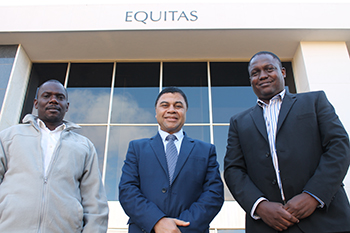Latest News Archive
Please select Category, Year, and then Month to display items
09 December 2020
|
Story UFS entral academic advising team
|
Photo Pixabay

It wasn’t easy, but we all got to this point because we stayed calm and made the effort to learn on even when it was difficult.
The University of the Free State (UFS) has remained committed to supporting you in every way possible, and as you prepare for the final assessments, remember to access the support tools you will need in order to successfully complete the 2020 academic year: https://www.ufs.ac.za/toolsforsuccess
Main exams are running from 30 November to 19 December 2020
All of the best, and break a pen in your upcoming final assessments. For those of you who will be graduating, we cannot wait to see you in that graduation attire; and those who still have some way to go, we cannot wait to serve you again in 2021 as we continue the pursuit of academic success!
Below are five main study tips that you can use for final assessment success:
1. Set a realistic study schedule
You might think that studying for eight hours straight for four days before the exam, will help you get through the work in time. See final edition of the #UFSLearnOn for more information.
2. Structure and organise your work
If your notes are organised, it is also easier for your brain to recall information, even when you become nervous during exams.
3. Practise with an old exam/semester test paper
Practice makes perfect, and although the final assessments might look different in how they are administered, it will still help to practise using old tests and exams.
4. Adapt your strategies to the content
What works for one module or even one learning outcome, might not be effective for another. You need to continually adapt your note-taking and study approaches. See #UFSLearnOn final edition for different study methods.
5. Healthy body, healthy mind
Your brain needs optimal care to perform at its best, and getting physically active (even if it is by jumping in one spot if space is limited) forces your body to release neurotransmitters responsible for positive emotions, which assist in retaining information in your memory …
Download the final edition of #UFSLearnOn that points you towards the resources you’ll need to ace your final assessments and end 2020 off on a high note!
UFS hosts YSI for first conference of its kind in Africa
2017-06-13

From the left: Bryson Nkhoma, a doctoral student from
the International Studies Group, Prof Francis Petersen,
Rector and Vice-Chancellor of the UFS, and
Dr Tinashe Nyamunda, a postdoctoral fellow from the
International Studies Group.
Photo: Siobhan Canavan
In the first conference of its kind on the African continent, the University of the Free State’s Bloemfontein Campus was privileged to host the Young Scholars Initiative (YSI) conference.
Reflecting on the African experience
A total of 65 young and senior scholars from five continents attended the conference Decolonising Africa? The Economic History of Development, hosted by the YSI in partnership with the International Studies Group at the UFS.
The conference, held on 8 and 9 June 2017, provided an opportunity to reflect on the African experience from an historical perspective and to assess the current position of the continent in the global economy. It discussed new themes in development, such as the role of women, minorities and entrepreneurs.
The conference focused on how the business community has operated in an Africa that still faces inequalities and unfair terms of trade and lacks a unified political will.
Keynote speakers at conference
Prof Francis Petersen, Rector and Vice-Chancellor of the UFS, said decolonisation was not self-explanatory. “In its radical form, decolonisation presents two polar opposites. On the one side is white privilege and on the other is black pain.”
Prof Ian Phimister, Senior Research Professor at the Centre for Africa Studies at the UFS presented the opening keynote address entitled International Imperialism: The Violent Making of Southern Africa, 1884-1914.
Other keynote speakers included Prof Sabelo Ndlovu Gatsheni from the University of Pretoria, Prof Gareth Austin from the University of Cambridge, and the closing keynote by Prof Alois Mlambo from the University of Pretoria.